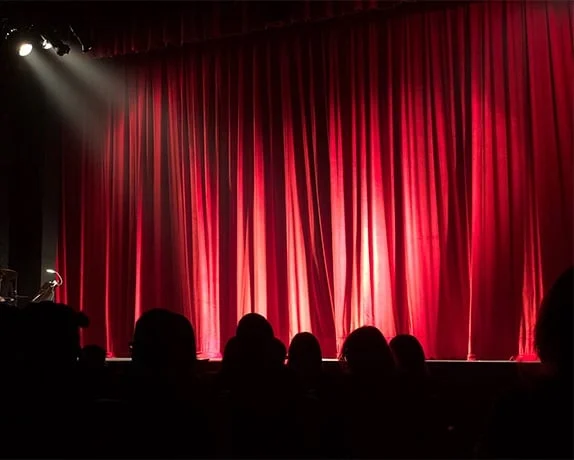
How Theatre Live Captioning Works
Going to the theatre is a great cultural experience. But have you ever wondered about what it must be like for someone who is deaf or hard of hearing? How do they follow along with the play if they're unable to hear what's going on? The answer is live captioning.
How Theatre Live Captioning Works
Going to the theatre is a great cultural experience. But have you ever wondered about what it must be like for someone who is deaf or hard of hearing? How do they follow along with the play if they’re unable to hear what’s going on? The answer is live captioning.
Live captions are a great way to make the theatre accessible to the deaf and hard-of-hearing community, as well as being beneficial for children and people with English as a second language. Live captioning can help all theatre goers if a performance has characters with strong accents, speaking in different languages or dialects or if there is singing. We know what you’re thinking, how is someone capable of typing so quickly?! The captioner isn’t actually typing madly during the show. The captioner has a script which they are following and continuously entering in to the live captioning software in time with the speaking. If an actor says something off script, the captioner has the ability to make changes in real time. The script that the captioner is using is slightly different to a regular script for a play. Stage directions are removed from the script, and things such as sound effects, music descriptions and song lyrics are added. Characters’ names are also often included to help the audience keep up with the names of each character.
To ensure accuracy of the captions, captioners will often rehearse the live captioning along with the play’s rehearsals. This helps the captioner get a feel for the flow of the performace and the pace of speakers. It ensures that the captions are well timed and won’t give away any big plot points or a joke’s punchline. These rehearsals also help to find the best position for displaying the captions in the theatre so that any attendees who require them are able to view them easily and still see what’s happening on stage.
Ultimately, live captioning at the theatre can benefit everyone. It encourages people who are deaf or hard of hearing to come to the theatre and not be afraid about missing out. It can also benefit hearing patrons just in case they missed something that was said, or if a character has an accent which is hard to understand. Next time you decide to go to the theatre, keep an eye out for the captioned performances!
Interested in having your performances captioned?
Contact us at !